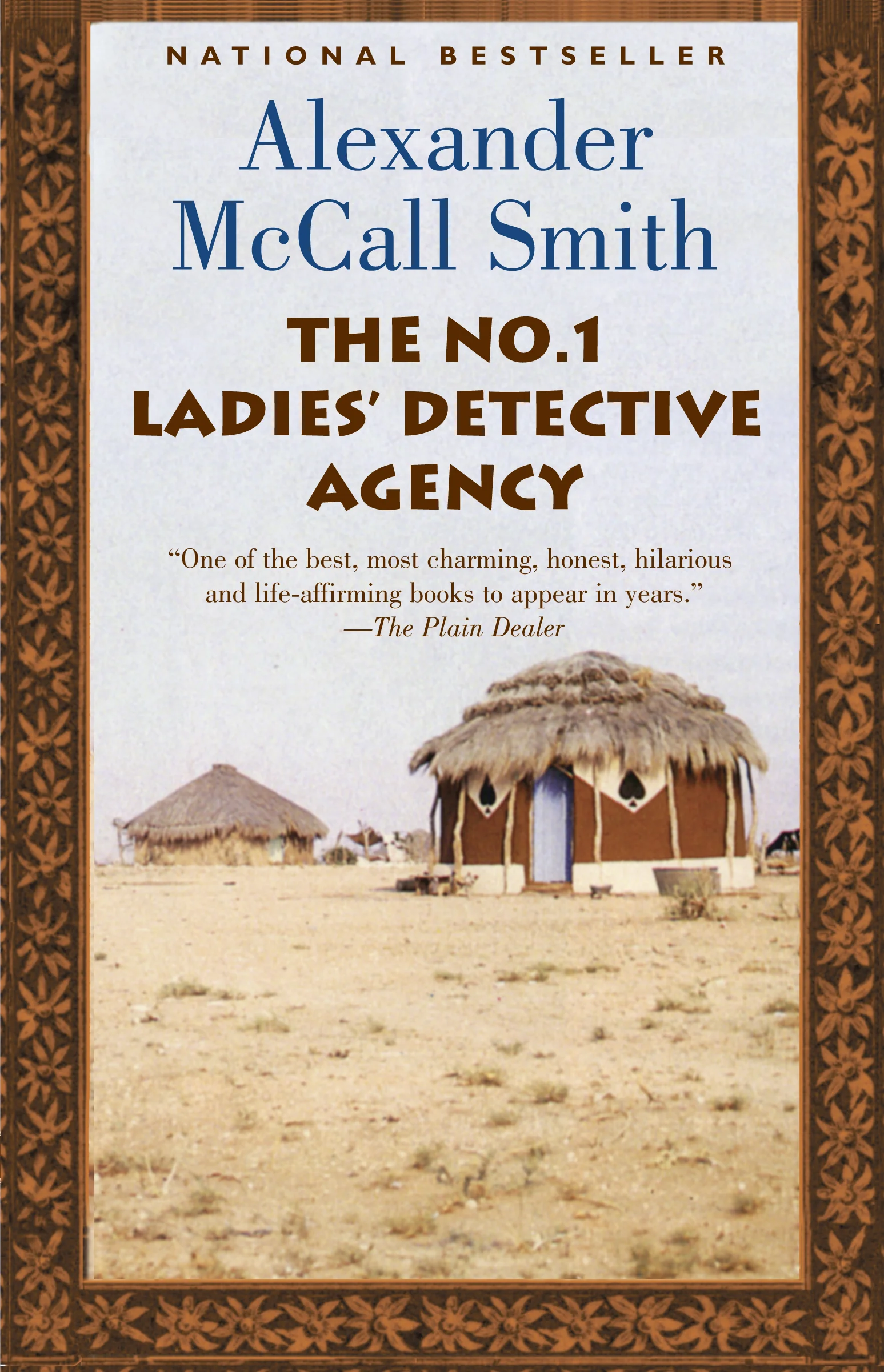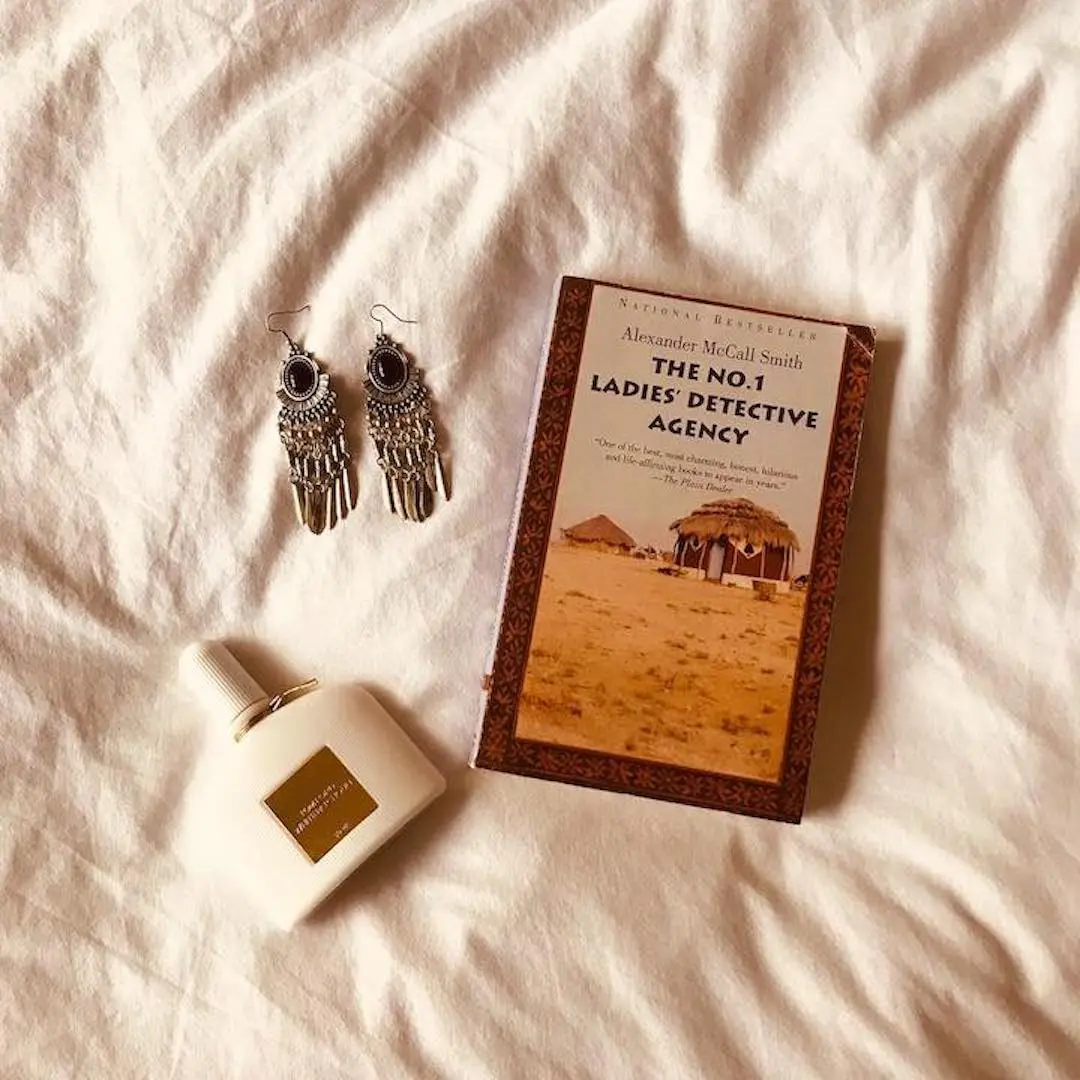The bustling streets of London faded into the background as I found myself transported to the sun-drenched plains of Botswana, courtesy of Alexander McCall Smith’s “The No. 1 Ladies’ Detective Agency.” It was a chance encounter at a local bookshop that led me to this gem. The vibrant cover, adorned with acacia trees and a determined-looking African woman, caught my eye amidst a sea of gritty crime novels. Intrigued by the promise of a different kind of detective story, I decided to give it a go.
From the very first page, I was captivated by the warm, inviting prose that introduced me to Mma Precious Ramotswe, Botswana’s first female private detective. Smith’s writing style is like a gentle breeze, carrying you along effortlessly through the streets of Gaborone and into the lives of its inhabitants. The story unfolds as a series of vignettes, each case bringing a new facet of Botswanan life into focus.
What struck me immediately was the refreshing lack of violence and gore that often dominates the crime genre. Instead, Mma Ramotswe’s cases revolve around everyday mysteries – missing husbands, suspected infidelities, and small-time fraudsters. It’s a testament to Smith’s skill that these seemingly mundane investigations are just as gripping as any high-stakes thriller.
The heart of the book, however, lies in its characters. Mma Ramotswe is a revelation – clever, compassionate, and fiercely proud of her heritage. Her observations on life, love, and human nature are peppered throughout the narrative, often leaving me nodding in agreement or chuckling at her wit. One particular line that stuck with me was her musing on the nature of happiness: “The problem, she thought, was that people didn’t know what they were allowed to be happy about. They were waiting for permission, and secretly hoping that perhaps there was some mistake and that they would be allowed to be happy about everything.”
This simple yet profound observation encapsulates what I found most endearing about the book – its ability to find joy and wisdom in the everyday. It’s a reminder that happiness isn’t always about grand gestures or momentous occasions, but can be found in a cup of bush tea shared with a friend or the satisfaction of solving a small mystery.
That’s not to say the book is without its flaws. At times, the pacing can feel a bit languid, especially for readers accustomed to more action-packed thrillers. Some might find the episodic structure repetitive, and there were moments when I yearned for a more cohesive overarching plot. However, I found that these apparent weaknesses actually contributed to the book’s charm, mirroring the unhurried pace of life in Botswana and allowing for deeper character development.
What truly sets “The No. 1 Ladies’ Detective Agency” apart is its sense of place. Smith’s depiction of Botswana is so vivid and affectionate that the country itself becomes a character. Through Mma Ramotswe’s eyes, I saw the beauty of the African landscape, felt the heat of the sun, and experienced the warmth of its people. It made me realize how rarely we see Africa portrayed in literature beyond the usual narratives of conflict and poverty.
This cultural immersion was both educational and thought-provoking. It challenged my preconceptions about African society and made me reflect on the universality of human experiences. The way Mma Ramotswe navigates the tension between tradition and modernity, for instance, resonated with me deeply, despite our vastly different backgrounds.
One of the most poignant storylines involves the case of a missing boy, possibly abducted by witch doctors. This subplot delves into darker territory, touching on the persistence of superstition in modern Africa. It’s handled with sensitivity and nuance, never resorting to sensationalism or cultural stereotyping. Instead, it presents a complex picture of a society in transition, grappling with the coexistence of old beliefs and new realities.
As I turned the final page, I found myself feeling a sense of loss, as if I were saying goodbye to a dear friend. Mma Ramotswe’s world had become so real to me that I was reluctant to leave it behind. The book had not only entertained me but had also broadened my horizons and challenged me to think differently about detective fiction, African literature, and the human condition.
In the days that followed, I found myself recommending “The No. 1 Ladies’ Detective Agency” to friends and family with an enthusiasm that surprised even me. It’s not often that a book comes along that can appeal to such a wide range of readers – from mystery lovers to armchair travelers, from those seeking light-hearted entertainment to those craving cultural insight.
For me, this book was a reminder of the power of storytelling to bridge cultural divides and reveal our shared humanity. It’s a celebration of resilience, wisdom, and the quiet heroism of ordinary people. In a world that often seems divided and chaotic, Mma Ramotswe’s Botswana offers a welcome respite – a place where problems can be solved with a cup of red bush tea, a slice of fruit cake, and good old-fashioned common sense.
So, if you’re looking for a book that will transport you, make you smile, and leave you with a renewed appreciation for life’s simple pleasures, I can’t recommend “The No. 1 Ladies’ Detective Agency” highly enough. It’s a literary journey well worth taking, one that will stay with you long after you’ve closed the book.